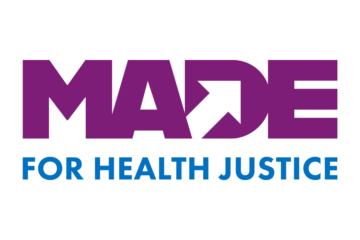What do Smokey Bear and Benjamin Franklin have in common? Fire safety. This year Smokey Bear celebrates his 75th anniversary as the star of the nation’s longest-running public service advertising campaign, considered one of the most successful ever. More than 200 years earlier, Franklin wrote a letter to the local newspaper urging Philadelphia to focus on fire prevention. Making the point that preventing fires would be preferable to rebuilding the city, he said, “an ounce of prevention is worth a pound of cure.” His advocacy led to the creation of Philadelphia’s first fire department, which focused on both fire response and prevention.
The value of “an ounce of prevention” is particularly evident in health, and philanthropists are starting to see public health as one of the best investments for improving lives. A recent article in Inside Philanthropy, “Here and Now: Behind the Rise in Giving for Public Health Initiatives,” reports on increased philanthropic giving to schools of public health, noting that many donors are attracted to public health “as a means to accelerate social justice and combat inequality.” The article references large gifts to Emory University’s Rollins School of Public Health, Drexel University’s School of Public Health, the Harvard T.H. Chan School of Public Health, and the Milken Institute School of Public Health at George Washington University, among others.
 Our own founder, Pierre “Pete” de Beaumont, an entrepreneur who founded the Brookstone Company, identified public health as his priority when he created the de Beaumont Foundation in 1998. Our board chair and former pediatric ophthalmologist, James S. Sprague, MD, recalls giving Mr. de Beaumont several options. “Pete had a broad vision to relieve human suffering,” Dr. Sprague said. “I told him he could build a hospital or he could fund fellowships to support medical education. Those options didn’t appeal to him, and I said if he really wanted to make a difference, he should consider public health — focusing on prevention and population health, instead of treating people who were already sick.”
Our own founder, Pierre “Pete” de Beaumont, an entrepreneur who founded the Brookstone Company, identified public health as his priority when he created the de Beaumont Foundation in 1998. Our board chair and former pediatric ophthalmologist, James S. Sprague, MD, recalls giving Mr. de Beaumont several options. “Pete had a broad vision to relieve human suffering,” Dr. Sprague said. “I told him he could build a hospital or he could fund fellowships to support medical education. Those options didn’t appeal to him, and I said if he really wanted to make a difference, he should consider public health — focusing on prevention and population health, instead of treating people who were already sick.”
In an area that has not traditionally received a lot of philanthropic support, we are proud to work alongside foundations that share our commitment to improving health and reducing inequities, such as the Robert Wood Johnson Foundation, the W.K. Kellogg Foundation, the Kresge Foundation, the Colorado Health Foundation, and the California Endowment. We welcome the interest and support of other national and regional foundations that want to get more involved in this important area.




